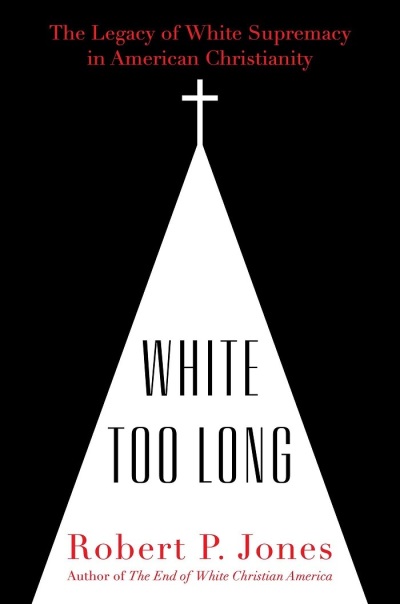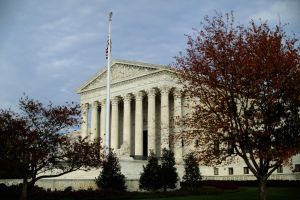White Christians more racist than secular whites, researcher Robert P. Jones reveals
White Christians more racist than secular whites, researcher Robert P. Jones reveals

In his latest book, White Too Long: The Legacy of White Supremacy in American Christianity, Robert P. Jones, founder and CEO of the Public Religion Research Institute, argues that white Christians are more racist than their secular counterparts and have perpetuated white supremacy in American culture.
The book, released Tuesday, analyzes “the repressed history of the symbiotic relationship between Christianity and white supremacy,” according to an overview presented by publisher Simon & Schuster.
“White Too Long demonstrates how deeply racist attitudes have become embedded in the DNA of white Christian identity over time and calls for an honest reckoning with a complicated, painful, and even shameful past. Jones challenges white Christians to acknowledge that public apologies are not enough—accepting responsibility for the past requires work toward repair in the present. Jones argues that contemporary white Christians must confront these unsettling truths because this is the only way to salvage the integrity of their faith and their own identities.”
Jones, in an op-ed on the book published by NBC News Monday, argued that white Christian churches, as cultural institutions have legitimized the dominance of white supremacy and white Christians should take note of the current cultural climate around race and “finally find the humility and courage and love to face the truth about our long relationship with white supremacy and to dismantle the Christian worldview we built to justify it.”

“A close read of history reveals that we white Christians have not just been complacent or complicit; rather, as the nation's dominant cultural power, we have constructed and sustained a project of perpetuating white supremacy that has framed the entire American story,” he wrote. “The legacy of this unholy union still lives in the DNA of white Christianity today — and not just among white evangelical Protestants in the South, but also among white mainline Protestants in the Midwest and white Catholics in the Northeast.”
Pointing to his more than two decades of experience studying religious Americans nationwide through public opinion polls, Jones said his research shows how white Christians are more likely than other whites to, for example, deny the existence of structural racism.
He showed how throughout history however how racism and slavery was acceptable in white Christian churches and continues to impact the culture today.
“Consider the cultural context in which American Christianity, both Protestant and Catholic, was born. In the 18th and 19th centuries, as Protestant churches were springing up in newly settled territories after Native American populations were forcibly removed, it was common practice — observed, for example, at the Baptist church that was the progenitor of my parents' church in Macon, Georgia — for slaveholding whites to take enslaved people to church with them,” he wrote. “And as late as the 1940s, urban Catholic parishes in major cities such as New York still required Black members to sit in the back pews and approach the altar last to receive the bread and wine of the Eucharist.”
Through the use of a Racism Index, Jones also demonstrated that white Christians scored higher than their secular counterparts regardless of whether they were evangelical, Southern, mainline Protestant or Catholic, even after applying controls to the research like eliminating people who are "Christian in name only."
“This disparity in attitudes about systemic racism between white Christians and whites who claim no religious affiliation is important evidence that the common — and catalyzing — denominator here is religious identity,” Jones wrote.
“Even when controls are introduced in a statistical model for a range of demographic characteristics, such as partisanship, education levels and region, the connection between holding racist attitudes and white Christian identity remains stubbornly robust,” he continued. “While most white Christians think of themselves as people who hold warm feelings toward African Americans, holding racist views is nonetheless positively and independently associated with white Christian identity.”
He argued that while many white Christians will be shocked by his findings and point to evidence of their charity toward black Americans and involvement with social reforms like the abolitionist movement, if they should re-examine history more carefully, “a terrifyingly troubled alternative history emerges.”
“When we allow ourselves to cast our gaze beyond the rosy stories we tell about ourselves as champions and representatives of all that is good in America, while it may seem obvious to mainstream white Christians today that slavery, segregation and overt declarations of white supremacy are antithetical to the teachings of Jesus, such a conviction is, in fact, a recent development for most white American Christians and churches, both Protestant and Catholic,” he noted.
“The unsettling truth is that, for nearly all of American history, the light-skinned Jesus conjured up by most white congregations was not merely indifferent to the status quo of racial inequality; he demanded its defense and preservation as part of the natural, divinely ordained order of things.”





























